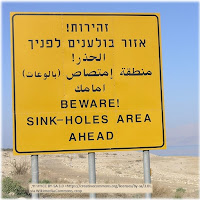וַיִּקַּח קֹרַח בֶּן־יִצְהָר בֶּן־קְהָת בֶּן־לֵוִי וְדָתָן וַאֲבִירָם בְּנֵי אֱלִיאָב וְאוֹן בֶּן־פֶּלֶת בְּנֵי רְאוּבֵן׃ וַיָּקֻמוּ לִפְנֵי מֹשֶׁה... (במדבר טז:א)
מה קרח לקח?
האמת, לא כתוב. "ויקח" הוא פועל יוצא ללא נשוא. מתרגמים ופרשנים משתדלים למלא את החָסֵר, אך לחֶסֶר עצמו יש משמעות: לא משנה מה הוא לקח. הפועל הפותח את סיפור אינו מיועד לקדם את העלילה אלא לספק חומר רקע על אישיותו של קרח: הוא אדם שלוקח, מה שבא לו, מתי שבא לו, כי לדעתו הכל מגיע לו.
לטיפוס כזה הרב אליהו דסלר קורא "נוטל." דסלר סבור ש-"הנתינה והנטילה הם שורשי כל המידות וכל המעשים." עבורו, כוח הנתינה הוא מהות הבריאה בצלם אלוהים ו-"כוח הנטילה או החטיפה כאשר אדם מתאווה למשוך אליו את כל הבא בתחומו, זו התכונה הנקראת 'אהבת עצמי,' והוא ההפך מן החסד ושורש כל הרעה.... הנוטל הורס הרבה יותר ממה שהוא בונה."[1]
בפרשה, קורח מתאווה לכוח פוליטי-פולחני. בתלמוד הוא ידוע כאדם עשיר במיוחד שנטל לעצמו אוצרות שיוסף החביא במצרים. לא מן הנמנע שקרח חשב שהשררה מגיע לו בגלל עושרו. רמז לדבר נמצא בעובדה שהכתוב מציין פעמיים שהאדמה בלעה את רכושו וגם את כל אשר לו.[2]
אפילו אם איננו חייבים, ליחסים בין האנושות וכדור הארץ כולנו בוודאי אחראים. מצד המסורת, אחריות זו נובעת מעצם הבריאה בצלם אלהים, שכוללת את הנתינה שהרב דסלר מדבר עליו אבל היא רחבה ומורכבת יותר. בסקירה קצרה אציג כמה מקורות שיכולות להיות לנו בסיס מחשבתי והשראה כאשר האחריות כבדה והנוחות קורצת לנו להתעלם ממנה.
אחת האמירות החזקות בכיוון זה בפרשנות הקלאסית הוא דברי אבן-עזרא על הפסוק בתהילים (קטו:טז) "וְהָאָרֶץ נָתַן לִבְנֵי-אָדָם: חסרי דעה חשבו כי ממשלת האדם בארץ כממשלת השם בשמים, ולא דברו נכונה... פירוש נתן לבני האדם –שהאדם כמו פקיד אלהים בארץ על כל מה שיש בה והכל לפי דבר השם."
בעת החדשה, פרופ' תקוה פרימר-קנסקי קושרת את אחריות האנושות למילה "צלם" עצמה: "מעמדו המהותי של האנושות בעולם אינו זה של האיכר, אלא של המנהל (executive). משמעות זו מפורשת. נאמר כי האדם הוא "צלם אלוהים" ו-"צלם" הוא מונח שמוכר לנו מכתובות מסופוטמיות, שבהן המלך הוא "צלם" האל. הכוונה היא לנציג של אלוהים עלי אדמות, זה שדואג שהכל יתנהל כשורה.[4]
אדם שמופקד על שמירת נכס עבור בעליו, יודע היטב שגם אם מותר לו לנצל מקצתו, אסור לו להשחיתו או לגזול ממנו. כאשר מדובר בכדור הארץ, איכשהו שוכחים. ב-1951 הרב אברהם יהושע השל כבר התריע: "מדהים כמה האדם המודרני מתעלם מאחריותנו לטבע. אנו מוצאים לפנינו עולם גדוש בחומרים וכוחות מופלאים, וללא היסוס אנו נאחזים בכל דבר שבהישג ידינו... ובהדרגה אנו משנים את פני כדור הארץ...."[5]
"הנאחז בכל דבר שבהישג ידו" אינה אלא ה-"נוטל" של הרב דסלר, כמה קרח, וכבר ראינו מה קרה לו.
במקום אחר השל הגדיר את ניצול הטבע "the way of expediency דרך התּוֹעַלְתִּיּוּת " וקורא לאזן את התועלת ההכרחי עם דרך הפליאה, בה אנחנו מגיבים לעולם במקום לנצל אותו.
מעל 70 שנים עברו מאז והמצב התדרדר בעולם שבו צרכנות נחשבת תרבות וגידול המשק הוא ערך שדוחה את גידול המזון ומתעלם מחיי הפועלים.
לפני כמה חודשים יצא ספר החדש קיימות מבראשית מאת ד"ר יונתן אייקנבאום. הוא מציג קריאה סביבתי לספר בראשית על בסיס בפירושו של הרב יוסף סולובייצ'יק המנסה ליישב את שני סיפורי הבריאה המקבילים בספר בראשית. בקיצור נמרץ: האדם הנברא בצלם בפרק א הוא יצירתי ושאפתני, איש התועלת והקניין ששואל איך העולם עובד כדאי לנצל משאבים ולייעל אותם לטובתו. בניגוד עליו, האדם מפרק ב שנוצר מן האדמה, הוא אדם החוויה והקיומיות אשר תוהה על מהותו של העולם ומקומו בו ושומר עליו מכל משמר.... שני הצדדים נמצאים בכל אדם, בכל חברה והמטרה, היעוד הוא למצוא את האיזון שמאפשר קיום אנושי מכובד בלי השחתה, ועם מחויבות לדורות הבאים.
קרח חטא בחוסר איזון, בדחיפת יתר לקחת. להימנע מגורלו המר, עלינו לממש את צלם האלהים שלנו, השליחות הקיימות, באחריות ובאיזון.
[1] משוכתב, "קונטרס החסד," מכתב מאליהו.
[3] אולי זה פשר הסתירה בין במדבר טז:ל ומשנה אבות ה:ו (עשרת הדברים שנבראו בערב שבת בין הערביים).
[4] Tikva Frymer-Kensky, “Ecology in a Biblical Perspective” in Torah of the Earth (2000). Trans. SMZ. מקורות נוספים על אחריות של בני אדם עבור כדור הארץ כביטוי של צלם אלהים.
[5] ר' אברהם יהושע השל, האדם אינו לבד (1951, תרגום: ד"ר ג'רמי בנשטיין, מרכז השל לקיימות).






